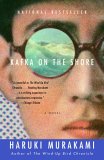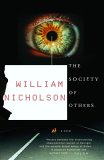Summary | Excerpt | Reviews | Read-Alikes | Genres & Themes | Author Bio

Coetzee's latest work of fiction offers us a profound and delicate vision of literary celebrity, artistry and the private life of the mind.
In 1982, J. M. Coetzee dazzled the literary world with the now classic Waiting for the Barbarians. Five novels, two Man Booker prizes and the 2003 Nobel Prize For Literature later, Coetzee is a writer of international stature and a novelist whose publication of a new work is heralded as a literary event. Now, in his first work of fiction since The New York Times bestselling Disgrace, he has crafted an unusual and deeply affecting tale.
Elizabeth Costello is a humane, moral, and uncompromising creation.
The subject of J.M. Coetzee's latest work of fiction is an Australian writer of international renown -- fêted, studied and honoured. Famous principally for an early novel that established her reputation and from which, it seems, she will never escape, she has reached the stage, late in life, where her remaining function is to be venerated and applauded.
One of a new breed of intellectual nomads, her life has become a series of engagements in sterile conference rooms throughout the world -- a private consciousness obliged to reveal itself to a curious public: the presentation of a major award at an American college where she is required to deliver a lecture; a sojourn as the writer-in-residence on a cruise liner during which she encounters a fellow guest lecturer, an African poet also employed to divert the passengers. Then there is a disquieting appearance at a writers' conference in Amsterdam where she finds the subject of her talk unexpectedly among the audience. She has made her life's work the study of other people, yet now it is she who is the object of scrutiny. But, for her, what matters is the continuing search for a means of articulating her vision and the verdict of future generations.
J.M. Coetzee's latest work of fiction offers us a profound and delicate vision of literary celebrity, artistry and the private life of the mind.

If you liked Elizabeth Costello, try these:

by Haruki Murakami
Published 2006
A tour de force of metaphysical reality, powered by two remarkable characters: a teenage boy who runs away from home to escape a gruesome oedipal prophecy, and an aging simpleton.

by William Nicholson
Published 2006
Written with the pace and thrust of a thriller, this is a stunning intellectual adventure, a moral fable bursting with art, poetry, music, and profound philosophical insight.